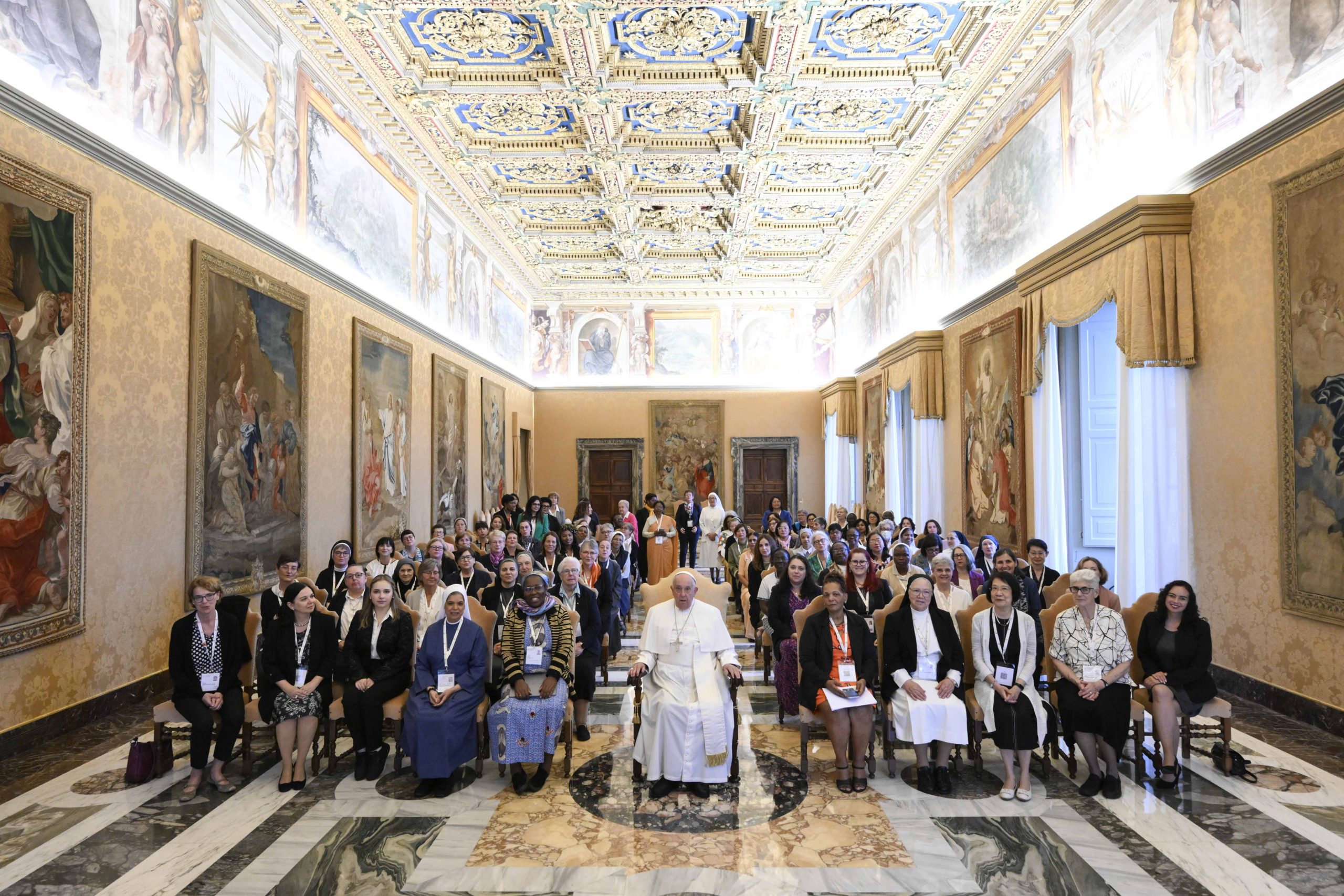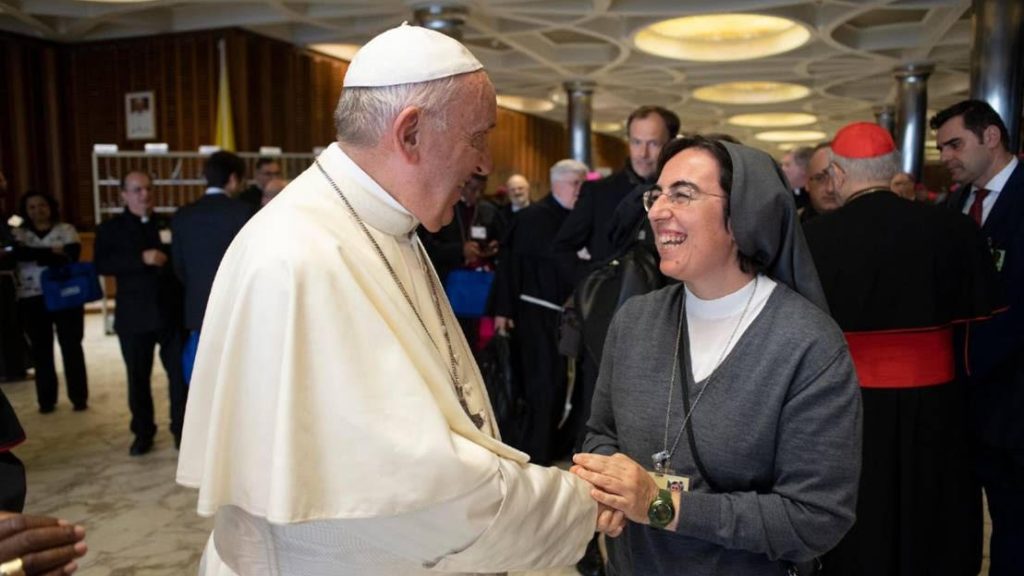For me, working with Pope Francis in service of the Holy See has been a journey marked by surprises.
My path began during my involvement in the Synod of Bishops on Youth (2018), during which members of God’s people, in particular some women, began to be more consistently present among the bishops.
The pope was very attentive to us at these gatherings and wanted us to feel his encouragement. It was during that synod that he first got to know me as a nun and economist. He generously gave me his confidence. In fact, the first time I met him during the Synod on Youth, he recognized me and said, “Ah, Smerilli, the economist!”
I always found this to be evangelical: Francis knew how to convey trust on a personal level, while giving due credit to the processes that made my participation possible. As a Daughter of Mary Help of Christians, I saw a consonance between the Holy Father’s style and Don Bosco's educational method — a blend of boldness and loving kindness.
In 2020, I was called to collaborate with the Vatican COVID-19 Commission. Then I was called to work for the Dicastery for Promoting Integral Human Development, first as undersecretary and then as “first” secretary.
It was — and still is — a great adventure, one marked by synodality. The beginning of my service coincided with the beginning of the universal synodal path, and the pope’s reorganization of the Roman Curia. With the publication of the constitution “Praedicate Evangelium” (“Preach the Gospel”) in 2022, Francis initiated a different way of placing oneself at the service of local churches, as well as of the bishop of Rome. We would all be walking together from here onward.
I would say that this set the tone for working alongside Francis. I learned a lot from his dedication, tirelessness, and willingness to accompany. Whenever a difficult problem arose, I was always impressed by his ability to calm the situation and involve himself personally by taking responsibility for uncomfortable decisions. At the same time, he also taught me to wait to make a decision until I have all the elements in place, and not to do so if something is unclear or if there are doubts.
Francis was a man with a profound capacity to listen. From this also sprang a very rare virtue, yet one that characterized the apostle Peter in the New Testament: the ability to change one’s mind and even apologize.
The relationship that the pope had with people, including with women, sprang from his prayer. Trained in the Ignatian style in which he immersed himself in the pages of the Gospel, he could identify with different points of view and listen to inner motions.

Ours quickly became a real bond in the exercise of governance by discerning situations and making decisions. In this I felt not only trust, respect, and an expectation of sincerity, but also an open and active heart.
Our bond was nourished by having nothing pre-packaged, no ideology or program to assert at any cost — only the tension to serve the Gospel, especially where God’s people suffer injustice or the consequences of a flawed development model.
Francis’ way of seeing the role of women in the Church is best understood against this backdrop: For him it was a matter of doing them justice, of recognizing them as bearers of a word too often silenced, of having them present in the processes of discernment and decision-making with their own feelings.
He was convinced that those who remained outside the centers of power for the most diverse reasons were the bearers of an indispensable point of view for understanding reality. This was not a trust of a purely sociological or cultural nature, but a deep theological awareness: The word of God is addressed to us in the cry of the poor and the earth. It is a wisdom from the margins.
With respect to his tireless work and dedication, I can say that whenever I sent him a request, his response came never more than 24 hours later. For me, this was a school of life, thinking about how often I make people wait for answers from me!
Regarding the focus on women and their involvement in roles of responsibility and decision-making processes, I heard him speak about these issues many times spontaneously, sometimes even without being asked a question about it. And he did this not only in Church settings, but especially when meeting with business leaders: He always noticed when there were few women in the groups he met. He could laugh and joke with me on this subject, too. Once we even changed the order of line up in a photo because he claimed that the men were marginalizing me!
What impressed me most, especially since his last admission to the hospital, was that he always answered our greetings and prayers, asking how we were and for news about our mission. His last gestures with us were to entrust us with people in need and concern for disaster-stricken populations. Inscribed in his very flesh was the outgoing Church he asked us to be — a Church not focused on itself, but on others.

